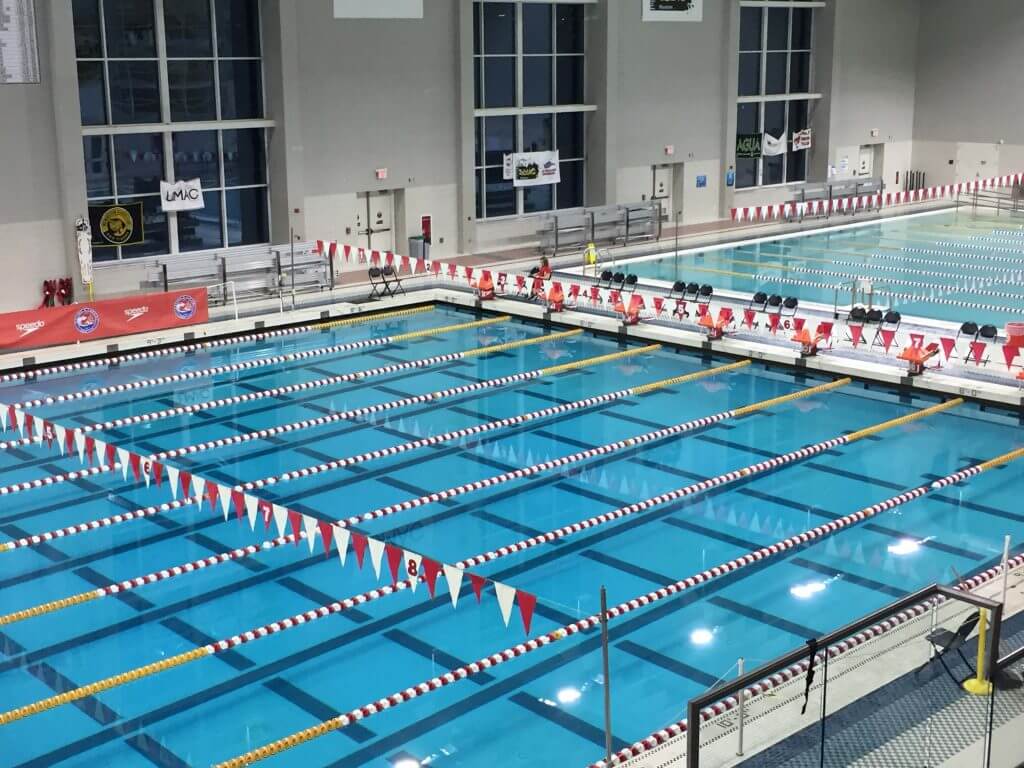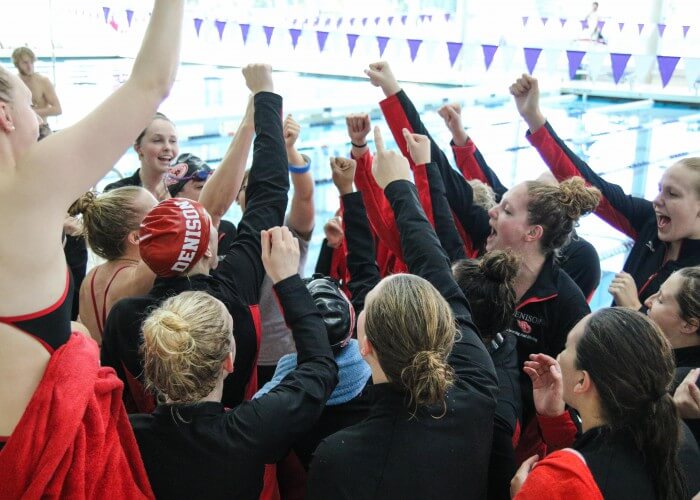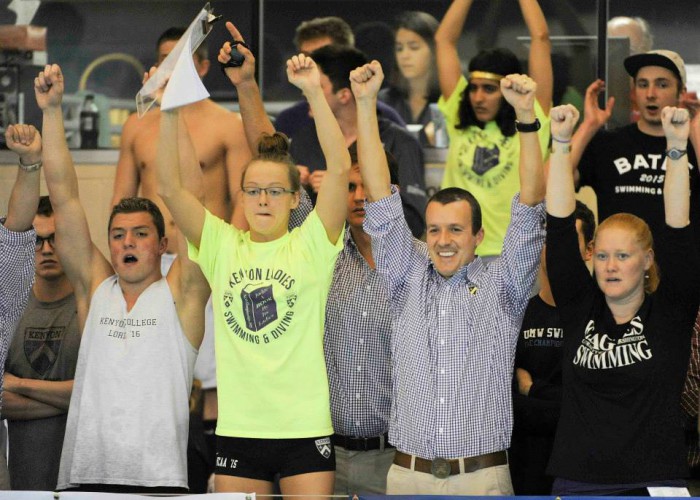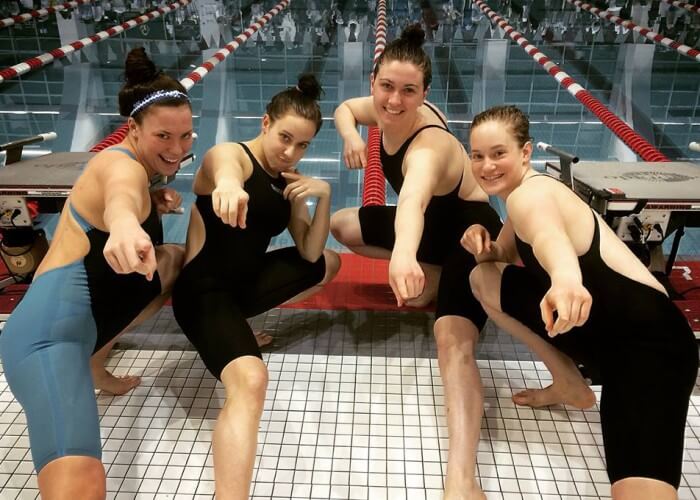6 Things to Look at in a College Team During Recruitment

By Jacob Riley, Swimming World College Intern.
It’s that season once again where thousands of high school athletes are looking at where to swim and study collegiately. This is an important process for a young person’s future, as these schools hold the keys to success for the next four years.
One important factor when considering what will make a swimmer successful in college is the team. These guys and girls will be the recruit’s teammates for the next couple of years during their college experience, and it is important to find qualities within the team itself that will help the recruits be successful.
1. Team Attitude
This is number one for an important reason on this list. Look at how the swimmers feel about swimming itself. Are they happy to be there? Do they attack practices with an attitude of “I’m going to get better today.” Or do they show up and do the minimum– remaining content with average practice performance. This is crucial for a recruit to consider when looking at schools, and specifically at the teams within those schools. If the recruit is the type of person that loves to be at practice, and joins a team that hates every second of practice, the fit will not be right.
2. Team Commitment

Photo Courtesy: Allen Rich
Commitment goes hand in hand with attitude, and it is super important to consider when looking at a swim team. Does the team show up to practice? When they show up, do they commit to getting better that specific day? Just showing up isn’t the commitment level that is required to get better. A recruit wants to look at how committed the team is to making progress. Getting better requires an environment of commitment, and the recruit should see how that team’s level of commitment matches their own.
3. How Does the Team Like the Program?
Ultimately, the team knows how much they truly like the program they are a part of and it is important to pick their brains on the contentment levels within the team. If the team does not enjoy the training of their program, or they don’t buy into the program, it can mean that the team attitude and commitment will not be what they could be.
4. Team Goals

Photo Courtesy: Eric Christian Smith for Kenyon College
When a recruit takes a recruiting trip somewhere, the coach most likely will sit them down and discuss their team goals on a short-term, and long-term level. As a recruit, it’s important to examine each team’s goals. What does the team wants to accomplish in the next couple of years? Compare that to what the coach’s goals are for the team. Do they match up? The team itself will give you an accurate sense of what they are striving for, and this is important when considering what type of goals the recruit sees for themselves in the next four years.
5. Team Interaction
Recruits should be active observers on these trips. Watch how the team interacts. Do they like each other? How close are they? Are they like a family? Or do they just interact like distant friends who swim together for many hours each day? This dynamic is important for a recruit to consider when looking at schools. Everyone being close is an important factor on a swim team, because it cultivates a positive environment, and help leads teams to greater success. It is much easier for a person to give it their all when they feel they’re doing so for their “brothers” and “sisters”.
6. Common Interests

Photo Courtesy: Cathleen Pruden
Finally, a recruit should look at their shared common interests with the team. Do they share common likes and dislikes? Will they get along based off of their likes and dislikes? If there isn’t a lot of common ground, it might be harder to relate with the team. The point still stands that it’s much easier for someone to give it their all with people they share common interests with than it would be for complete opposite personalities.
These factors will be indicative of the type of team environment at the university. The environment is important to team success– an atmosphere that is the best for the recruit will help breed success in the pool and in the classroom.
All commentaries are the opinion of the author and do not necessarily reflect the views of Swimming World Magazine nor its staff.




I was on CREW in college but I had more friends on the swim team! Most swim teams have great team spirit and less conflict than most other sports.
Abdullah Hayek
Maybe you should think about what you would like to learn in college. Or whether the colleges that you are thinking of attending actually provide students with an education. And how well the coach and professors work together to make sure the swimmers get an education while they are there.
Kelli Curington
Awkward rings around the eyes, crazy arm flapping before a race and the weird obsession everyone seems to have with shaving. All things we swimmers have in common and more: http://www.collegemagazine.com/10-sinking-struggles-swimmers-understand/
How about does the school offer what I’d like to study and are they noted for it? Do II want a big school or small school? Does the team seem to mesh w me(goals, friendliness, hard working etc.) Is the weather something I can adjust to or like? Is there a place where I can worship(since that matters more these days) Do the swimmers enjoy program.